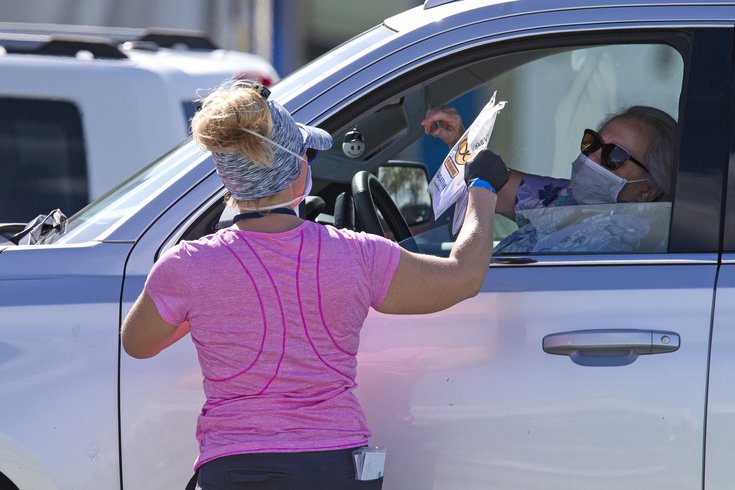
November 30, 2020
 David Santiago/Miami Herald/TNS/Sipa USA
David Santiago/Miami Herald/TNS/Sipa USA
People with COVID-19 are most likely to transmit the disease within the first week of contracting the virus, research shows. Above, a health care worker collects a self-administered test sample at a testing site in Miami, Florida.
The 10-day isolation period now recommended for people with COVID-19 could be shortened by several days, according to a new research analysis. And the U.S. Centers for Disease Control and Prevention reportedly is considering changing its guidelines.
People who test positive for the coronavirus are most infectious two days before they first experience symptoms and five days afterward – a period that ends five days shy of current isolation guidelines, research suggests.
The CDC currently recommends that people with COVID-19 self-isolate for a minimum of 10 days after they first develop symptoms. The research analysis, published earlier this month in the medical journal The Lancet Microbe, calls those guidelines into question.
Other countries, including France, Germany and Belgium, already have shortened their self-isolation guidelines, according to the New York Post.
The CDC may follow suit as early as next week, the New York Times reported.
The guidelines likely will be amended to recommend a self-isolation period of seven to 10 days, Henry Walke, a top CDC official, told the Wall Street Journal. They also may recommend a follow-up test be administered to ensure the patient is no longer positive.
Previous research shows some patients suffering from severe COVID-19 may transmit the virus for as long as 20 days. In mild cases, researchers found some people are infectious for about a week.
The testing strategy may miss some ongoing infections, but shortening the self-isolation time may make people more likely to stay home.
"We do think that the work that we’ve done, and some of the studies we have and the modeling data that we have, shows that we can with testing shorten quarantine," Walke said. "... Hopefully, people would be better able to adhere to quarantine if it was, for example, seven to 10 days."
Follow Allie & PhillyVoice on Twitter: @allie___miller | @thePhillyVoice
Like us on Facebook: PhillyVoice
Add Allie's RSS feed to your feed reader
Have a news tip? Let us know.